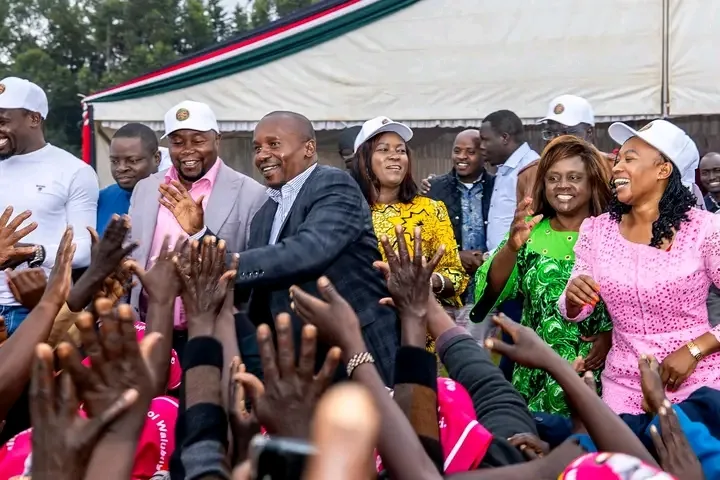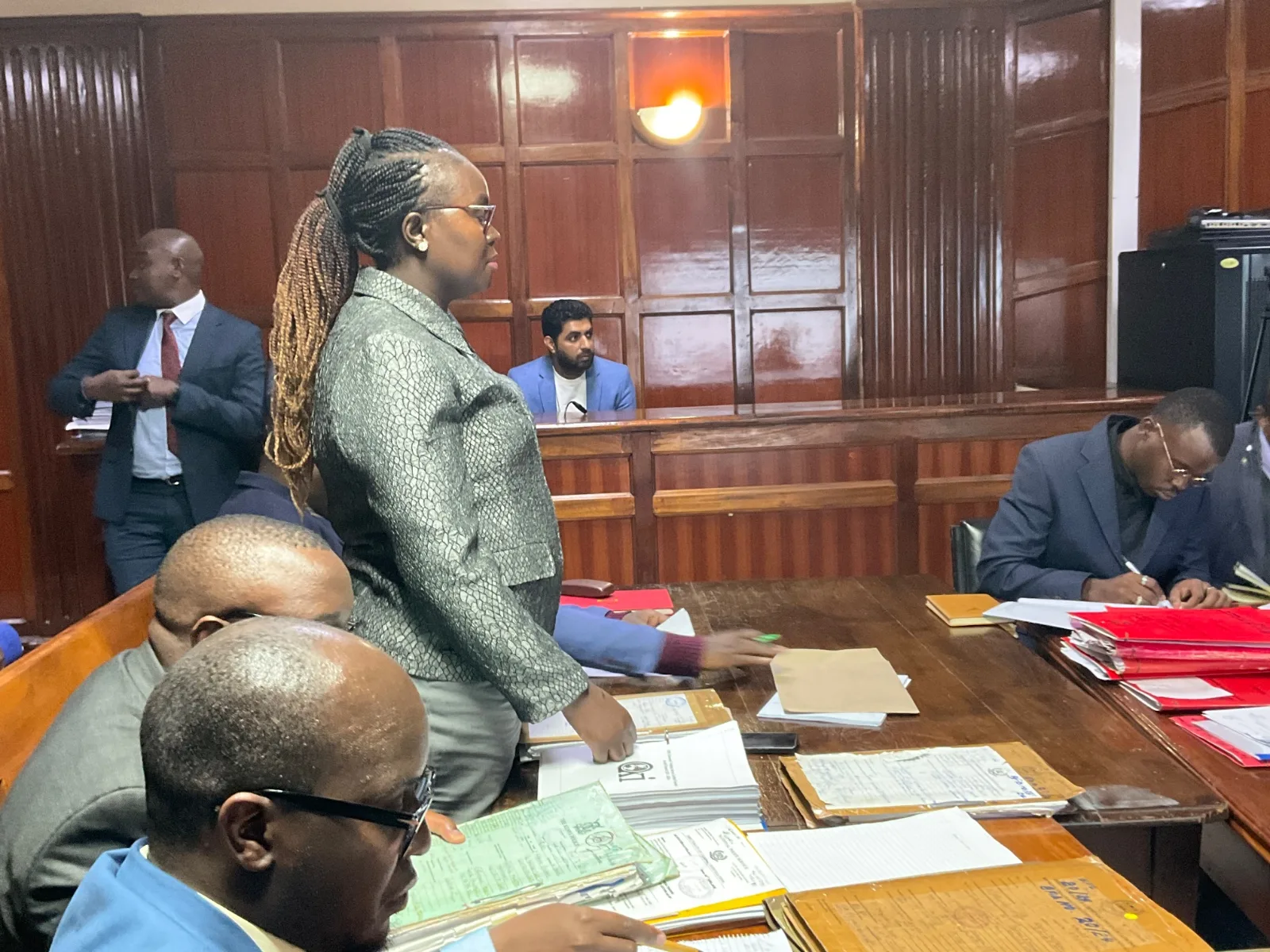BY; John Peter
Deputy President Kithure Kindiki has vowed to lead a campaign aimed at diminishing the political influence of his predecessor, Rigathi Gachagua.
Kindiki dismissed Gachagua’s opposition to the government, asserting that his efforts would not intimidate the administration.
Hours after Gachagua’s televised attack on Kenya Kwanza’s leadership, Kindiki fired back, claiming that Gachagua was in panic mode as the government continued to gain ground.
“The former DP should be panicking over the consultative forums we are holding. He hasn’t seen anything yet. We will run him out of town,” Kindiki declared.
The DP made these remarks while meeting a delegation of about 2,700 grassroots leaders and professionals from Kiambu County. He emphasized that Gachagua does not hold exclusive political control over the Mt. Kenya region.
Kindiki reaffirmed that the government would implement its projects, regardless of public opinion. He insisted that service delivery must continue, even if it affects popularity ratings.
“President William Ruto is a transformative leader. He will do the right thing, no matter how unpopular it makes him. Threats of a single-term presidency do not bother him,” Kindiki added.
Since assuming office, Kindiki’s Karen residence has been a hub of activity, hosting meetings with grassroots leaders. These engagements aim to explain government projects and strengthen political support.
Laikipia North MP Sarah Korere confronted Gachagua directly, reminding him that he was in Laikipia, not Nyeri, and urging him to support the president’s agenda instead of fostering division. She publicly rebuked Gachagua over his stance.
Former Laikipia Woman Representative Cate Waruguru insisted that Gachagua remains the Mt. Kenya kingpin and declared that Ruto would not be allowed to establish a stronghold in the region.
Senator John Seki fueled the debate, asserting that the Maasai community firmly stands with Gachagua in his defiance against the administration.
MP Innocent Mugabe also weighed in, warning Gachagua against undermining the leadership of the president. He argued that internal conflicts only serve to weaken the government’s ability to deliver on its promises.
Meanwhile, Farouk Kibet, a close ally of Ruto, launched a scathing attack on Gachagua, accusing him of destabilizing the party and creating unnecessary divisions.
Senator Methu added to the drama, claiming that Ruto’s political enemies were possessed by evil spirits and required divine intervention, though it was unclear if this was meant literally or figuratively.
In a surprising turn, Senator Omtatah took on President Ruto directly, questioning when the head of state found time to study since he always seemed to be on the move in vehicles.
Senator Joe Nyutu issued a strong warning to Ruto, suggesting that granting Somali communities national identification cards could put his own life at risk.
Senator Kiio Wambua also took a jab at Ruto, urging him to stop misleading Kenyans with what he described as a fake PhD, calling for integrity in leadership.
Despite the growing political chaos, President Ruto has remained noticeably silent. His reluctance to intervene has raised questions about his strategy in handling the rift between his deputy and Gachagua.
Political analysts suggest that Ruto’s silence could be a calculated move to let internal conflicts play out before making decisive interventions. However, some warn that continued infighting could weaken his administration ahead of the 2027 elections.
So far, DP Kindiki has consulted leaders from over eight counties. More meetings are scheduled in the coming days as he takes charge of government project implementation.
The political battle between Kindiki and Gachagua signals heightened tensions within the ruling party. Analysts predict a major shift in the political landscape ahead of 2027.




